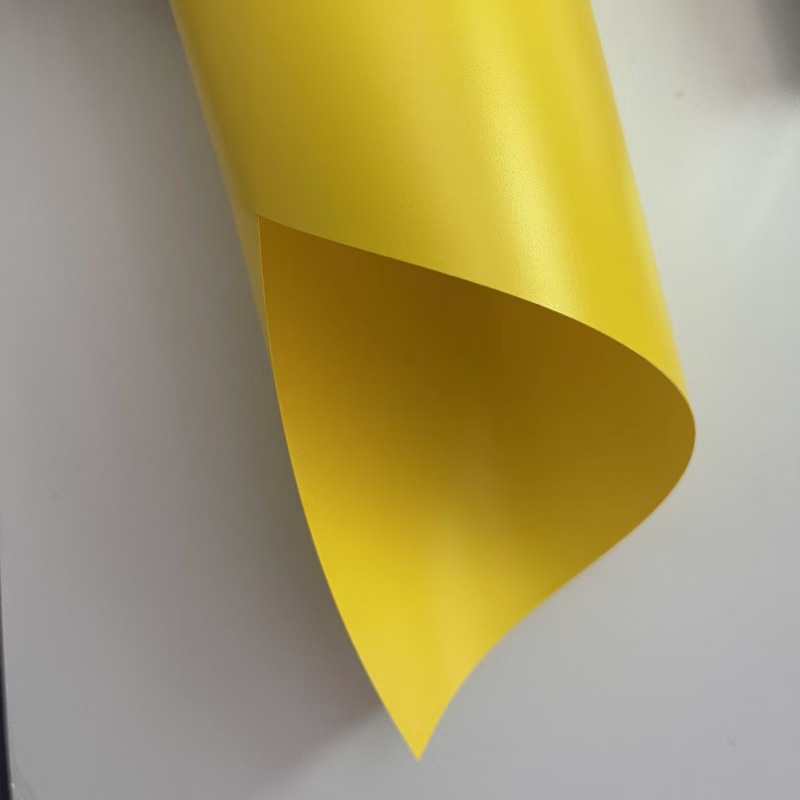Recycled PP Insulation Flame Retardant Film in Packaging: A Sustainable Alternative
As sustainability becomes a key focus for industries worldwide, the use of recycled materials in packaging is gaining traction. One such material is PP Insulation Flame Retardant Film . This article discusses the potential of using recycled PP film as a sustainable alternative in the packaging industry, exploring both its benefits and challenges.
Why Use Recycled PP Insulation Flame Retardant Film in Packaging?
Recycled PP Insulation Flame Retardant Film offers several advantages that make it an attractive choice for packaging applications:
Eco-friendly: Using recycled PP film helps reduce plastic waste and promotes the circular economy, where materials are reused rather than discarded.
Cost-effective: Recycled PP film is often less expensive than virgin material, which can help manufacturers reduce production costs.
Flame retardancy: PP Insulation Flame Retardant Film retains its flame retardant properties even after recycling, making it suitable for packaging applications that require fire safety standards.
Challenges of Using Recycled PP Insulation Flame Retardant Film in Packaging
While the use of recycled PP Insulation Flame Retardant Film in packaging offers several benefits, there are challenges that need to be addressed:
Quality consistency: Ensuring that the recycled PP film maintains consistent quality and performance across different batches can be difficult, especially when sourced from different recycling centers.
Performance degradation: Over time, the performance of recycled PP film may degrade, which could limit its suitability for certain packaging applications.
Recycling infrastructure: Not all regions have the infrastructure needed to efficiently collect and process PP film, which could limit the supply of recycled material for packaging industries.
The Environmental Impact of Recycling PP Insulation Flame Retardant Film
The environmental benefits of using recycled PP Insulation Flame Retardant Film in packaging are significant:
Waste reduction: Recycling PP film helps divert plastic waste from landfills, reducing the overall environmental impact of packaging production.
Lower carbon footprint: The recycling process typically consumes less energy than manufacturing new PP film, which helps reduce greenhouse gas emissions associated with packaging production.
Resource conservation: By recycling PP film, manufacturers conserve valuable natural resources, such as petroleum, which is used to produce virgin plastic materials.
Applications of Recycled PP Insulation Flame Retardant Film in Packaging
Recycled PP Insulation Flame Retardant Film has a variety of potential applications in the packaging industry:
Food packaging: Recycled PP film can be used for food packaging that requires flame retardancy, such as in packaging for ready-to-eat meals or other heat-sensitive products.
Retail packaging: It can be used for retail packaging of various products, including electronics and household goods, offering a sustainable solution for product presentation and protection.
Shipping and logistics: Recycled PP film can also be used in packaging for shipping and logistics, where its strength and flame retardant properties ensure the safety of products during transportation.
Conclusion
Recycled PP Insulation Flame Retardant Film offers an excellent opportunity for the packaging industry to adopt more sustainable practices. While challenges remain in terms of quality consistency and recycling infrastructure, the benefits of reduced waste, lower carbon footprint, and cost savings make it a promising alternative. As recycling technologies improve and the demand for sustainable packaging solutions grows, recycled PP film will play an increasingly important role in the packaging industry.
READ MORE:
- The Feasibility of Using Recycled PP Insulation Flame Retardant Film in Mass Production
- Future Trends in Recycling PP Insulation Flame Retardant Film for Low-End Products
- Exploring the Use of Recycled PP Insulation Flame Retardant Film in Construction
- Challenges and Opportunities of Using Recycled PP Insulation Flame Retardant Film in Low-Cost Products
Telephone: 008613530419893
E-mail:marie@selfadhesivefilm.com
ADDRESS (Shenzhen):903-286, Building A2, Guangming Technology Park, China Merchants Group, Guanguang Road, Fenghuang Community, Fenghuang Street, Guangming District, Shenzhen, Guangdong.
ADDRESS (Dongguan): 3rd Building No.45 Yinhu Road Shishuikou Community,Qiaotou Town, Dongguan, Guangdong.





